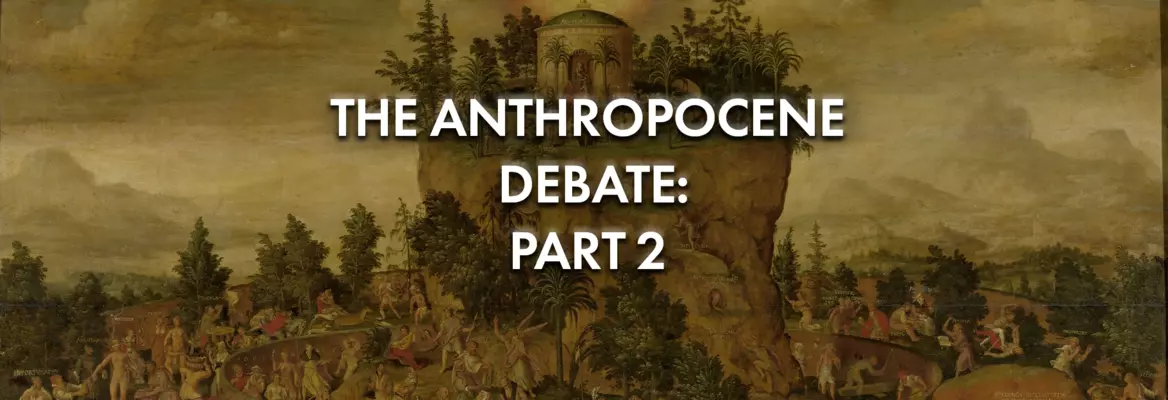In the second of our two-part series, we go head-to-head on the Anthropocene, after the status of ‘Anthropocene’ was rejected for the world by an international panel last month. Read Part 1 here of the debate here.
As ecological disaster on Earth looms ever larger, the International Union of Geological Sciences has voted against recognizing the Anthropocene as an official epoch. The vote was anti-scientific and regressive, argues Timothy Morton. Now more than ever we must recognize that we have entered an age of human-induced planetary transformation.
Timothy Morton's latest book, Hell: In Search of a Christian Ecology, will be published in May 2024.
You must understand, young Hobbit, it takes a long time to say anything in Old Entish. And we never say anything unless it is worth taking a long time to say. — Treebeard the Ent in J. R. R. Tolkien, The Lord of the Rings
Tolkien’s Treebeard is an ancient shepherd of the forest: he understands deep time like a geologist. In the movie, he’s talking to Merry and Pippin about discussing whether he and his fellows should join the war in defense of Middle Earth. The Hobbits are getting justifiably impatient: “Our friends are out there!”
The Ents make the wrong decision: they won’t join the battle. They have to be forced to see their error. Pippin makes Treebeard witness how thousands of trees have been cut down by the humanoid enemy: “Many of these trees were my friends!”
2024 is a year of elections around the world. In the US everything from democracy to the planet is on the ballot. The International Union of Geological Sciences (IUGS), a venerable committee of geologists, has chosen this moment to end a decades-long debate over the existence of a geological epoch – an epoch that continues today. Geological epochs last tens of thousands of years and longer. Many geologists want to call our present epoch the “Anthropocene,” in recognition of the geological-scale impacts of humans on the planet. This is an epoch marked by the ravages of enslavement and settler colonialism, and of the oil-addicted automated version we call industrial capitalism. These and other processes have changed Earth’s geology, have changed what you’ll find if you dig down into its crust – in the Arctic as much as in Arkansas. Nevertheless, the IUGS has decided that we are not, after all, in the Anthropocene.
You see, humanities scholars have been busy debating the very word, “Anthropocene.” Isn’t the word another example of an all too real and structural prejudice, a hangover from the time when Europeans referred to Man with a capital M, meaning a white man, straight and cis to boot? Hey geologists, the argument goes, you’re blaming everyone on Earth for what Europeans and Americans have done, mostly in the last few centuries. You’re being arrogant and you’re making a sweeping and toxic generalization. We should instead say “Capitalocene” or “Plantationocene” or “Anthroposupremacene,” and we should date its beginning to the Industrial Revolution or the early days of settler colonialism or some other dateable event on a timeline.
 SUGGESTED READING
Capitalism: Threat or solution to climate change?
By Harry Carlisle
SUGGESTED READING
Capitalism: Threat or solution to climate change?
By Harry Carlisle





















Join the conversation